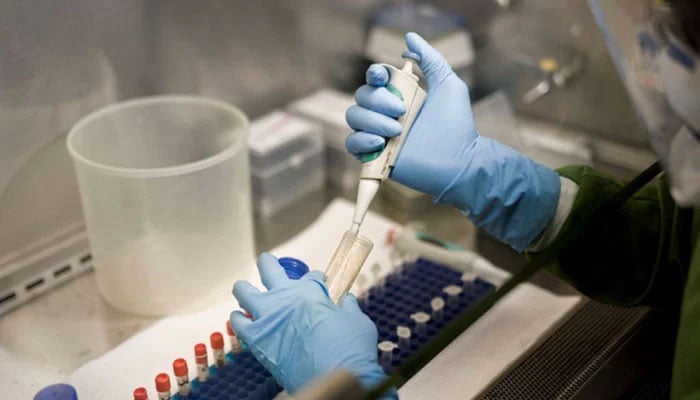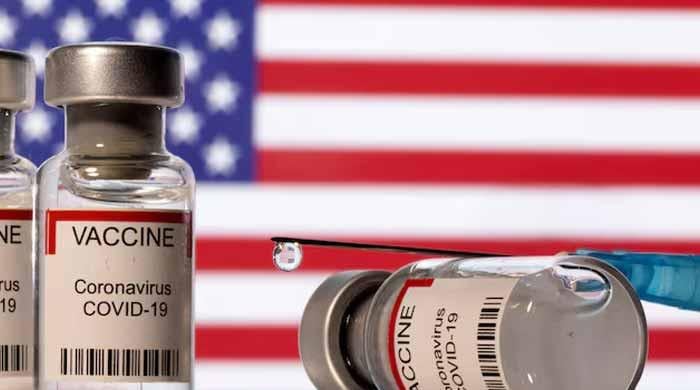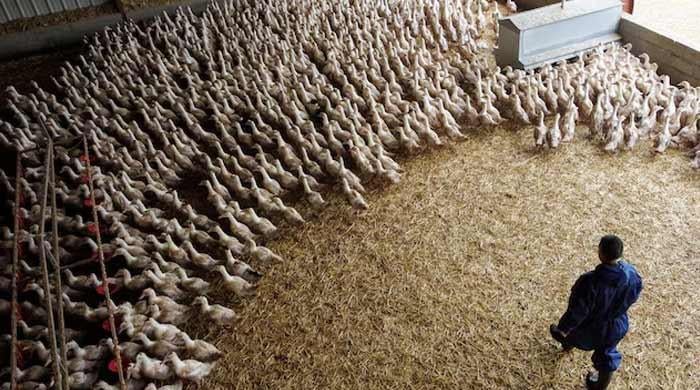Poliovirus found in sewage samples collected from KP, Sindh
NIH says polio eradication teams in both districts working to respond to detections
March 12, 2023

- Wild Poliovirus Type-1 (WPV1) detected from DI Khan environmental sample.
- Its the third positive environmental sample found in Pakistan in 2023.
- Vaccine-Derived Poliovirus Type-3 detected from environmental sample collected from Ghotki.
ISLAMABAD: Pakistan’s National Polio Laboratory at the National Institute of Health (NIH) Islamabad has confirmed the detection of Wild Poliovirus Type-1 (WPV1) as well as Vaccine-Derived Poliovirus Type 3 (VDPV3) in the environmental samples collected from Dera Ismail Khan in Khyber Pakhtunkhwa and Ghotki district of Sindh, reported The News on Sunday.
As per the publication, the WPV1 was detected from an environmental sample collected from Dera Ismail Khan. An NIH official shared that the sample was collected on February 21 of this year from the Paroa environmental sample collection site.
This is the first positive sewage sample from the endemic zone of Southern KP collected this year, and the third positive environmental sample found in Pakistan in 2023.
“It is worth mentioning here that no human Polio case has been reported from District DI Khan since December 2019. The new positive environmental (sewage) sample is genetically linked to the poliovirus detected in the same district (i.e. DI Khan) in November 2022. The last polio vaccination campaign in the district was conducted on 13 — 17 February 2023”, the official shared.
On the other hand, VDPV3 was detected from the environmental sample collected from district Ghotki. The NIH official informed the publication that the environmental (sewage) sample was collected on February 14 from the Bago Wah environmental sample collection site.
This is the first detection of VDPV3 in the country this year, with 11 nucleotides different from the reference sabin strain. The last polio vaccination campaign in the district was held from January 16 to 20 this year, the official added.
The NIH official maintained that polio eradication teams in both districts in support and guidance from the National and Provincial EOCs were working to respond to the detections.
“The programme has already planned a Polio vaccination campaign in mid-March in Punjab, Sindh and Islamabad and in the first week of April in Khyber Pakhtunkhwa and Balochistan wherein bivalent Oral Polio Vaccine will be used which is very effective against both types of Polioviruses”, the NIH official added.
On the other hand, the Global Commission for the Certification of Poliomyelitis Eradication (GCC), which met recently in Jordan to review progress towards interrupting WPV1 transmission in Pakistan and Afghanistan, raised concerns over shortcomings in surveillance performance, particularly the timeliness of detection and quality of environmental surveillance in some localities.
The commission reiterated the importance of environmental surveillance as a supplement to Acute Flaccid Paralysis (AFP) surveillance and, while recognising that its utility varies depending on ground realities, recommended that further analysis be conducted into ES system performance and for updates to be provided to the group on a biannual basis.









